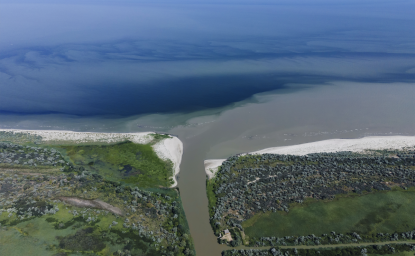Managing Water Conflict and Cooperation
Worldwatch's State of the World 2005 Includes Chapter on Water and Security
Worldwatch's State of the World 2005 Includes Chapter on Water and Security
Farmers, hydropower generators, recreational users, and ecosystems often compete for finite water supplies, both within and between nations. Despite this fact, water is rarely the single—and hardly ever the major—cause of violent conflict. But it can exacerbate existing tensions and therefore must be considered within the larger context of conflict and peace.
From the Middle East to New Mexico, the problems remain the same. So however, do many of the solutions. Human ingenuity has developed ways to address water shortages and cooperate in managing water resources. In fact, on the international level, cooperative events between riparian states outnumbered conflicts by more than two to one between 1945 and 1999. Institutional capacity—the ability of international institutions to successfully manage cross-boundary water resources—is a key factor in preventing conflicts and finding cooperative solutions.
Water has also been a productive pathway for building confidence and, arguably, preventing conflict, even in particularly contentious basins. In some cases, such as in the Middle East, water provides one of the few paths for dialogue in otherwise heated bilateral conflicts. In politically unsettled regions, water is an essential part of regional development negotiations, which serve as de facto conflict-prevention strategies.
The 2005 edition of Worldwatch's annual State of the World report, Redefining Global Security, examines the underlying sources of global insecurity, including the perilous interplay among poverty, infectious disease, environmental degradation, and rising competition for resources. ECSP Director Geoffrey Dabelko co-authored "Managing Water Conflict and Cooperation" with Aaron T. Wolf, Annika Kramer, and Alexander Carius; it is available from Worldwatch here.

The Environmental Change and Security Program (ECSP) explores the connections between environmental change, health, and population dynamics and their links to conflict, human insecurity, and foreign policy. Read more



